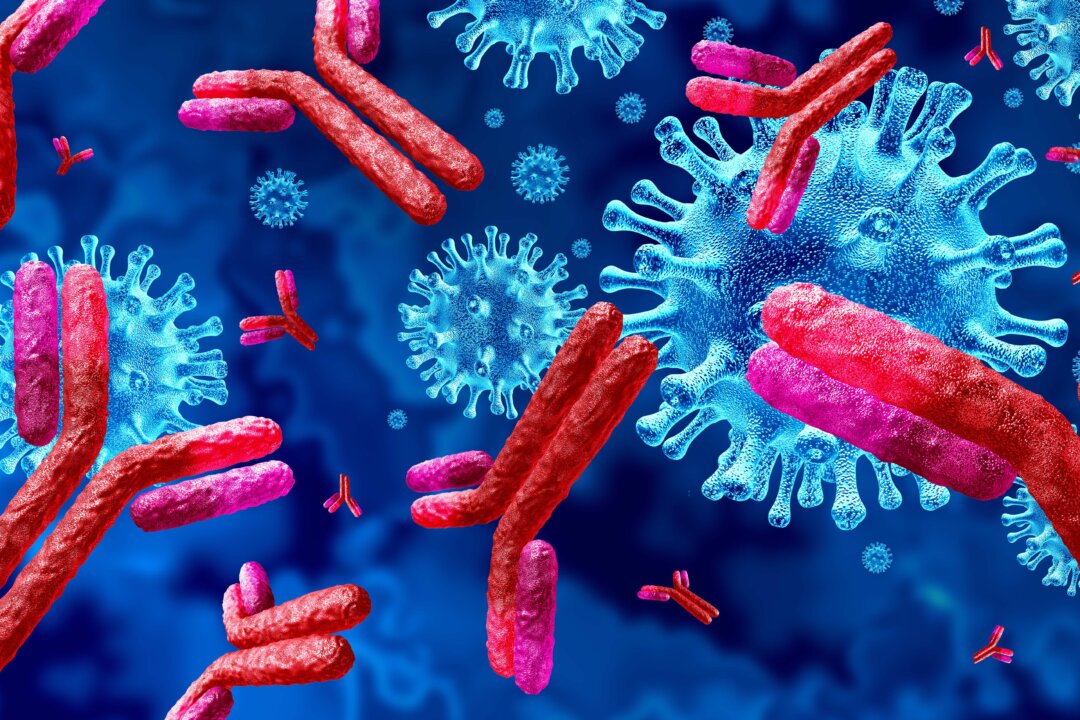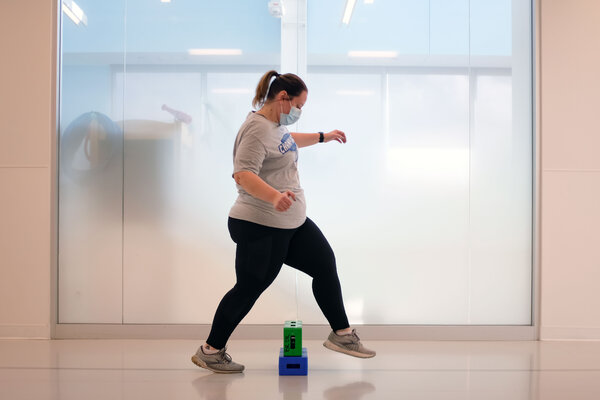You are using an out of date browser. It may not display this or other websites correctly.
You should upgrade or use an alternative browser.
You should upgrade or use an alternative browser.
Regarding Covid
- Thread starter cory
- Start date
- Replies 4K
- Views 364K
More options
Who Replied?BlackSmith
Uncivil
I’m dumb as a hog and I said the CDC was jack’n the numbers up when it all started. Fear porn. Never let a crisis go to waste.
Cobleskill
Treehouser
So if you take 20% of covid reported deaths away that leaves the US death count at 800,000. Yeah, I know, heart attacks, vehicle accidents, drug overdoses, blah blah.
SkwerI
Treehouser
But even that 800,000 number includes anyone who had a positive Covid test within 30 days of dying, regardless of the actual cause of death.
Marc-Antoine
TreeHouser
The 20% figure is a joke. " tested positive within one month before death = covid death". That's the new official definition !
No, seriously?
No, seriously?
At least if the cdc was the only one, but it was a generalised move (still is). The first time I ever heard of Covid, it was at my car's radio, when the WHO officialy promulged the covid as a pandemic "because of 300 deaths in China". I thought that some really fishy thing was coming. Not the covid itself.I’m dumb as a hog and I said the CDC was jack’n the numbers up when it all started. Fear porn. Never let a crisis go to waste.
Cobleskill
Treehouser
I know several people who did die from covid. Not a fall or auto accident. So out of the 10 I know at least 2 should be bogus. Or lots more.
FireFighterZero
Captain Zero!
I know several people who did die from covid. Not a fall or auto accident. So out of the 10 I know at least 2 should be bogus. Or lots more.
In your opinion, did the lockdowns go too far or not far enough?
Should the mandates have been enforced more or less strictly? Should people have been given a choice or not?
Mellow
BCMA
Why is it so difficult for some people to understand the difference between dying WITH covid and dying FROM covid?
BeerGeek
Tree Numbnutz
Hmmm....

 amgreatness.com
amgreatness.com

Military Doctor Testifies in Court That a Superior Ordered Her Not to Discuss Data Showing Massive Spikes in Illness After Vaccine Mandate › American Greatness
A military medical officer testified in court last week that she was ordered by a superior not to discuss her findings regarding the DoD’s Defense Medical Epidemiology Database (DMED) during the…
gf beranek
Old Schooler
Good thing. More people are breaking out and telling the truth.
Mellow
BCMA
More and more "conspiracy theories" turning out to be true.
gf beranek
Old Schooler
I'm starting to feel vindicated.
Though it wont last long.
The next crisis will over shadow it.
Though it wont last long.
The next crisis will over shadow it.
SeanKroll
Treehouser
Sounds like a very Us vs. Them statement that lumps all people opposed to your viewpoint together.
gf beranek
Old Schooler
Conservative / liberal viewpoints. Nothing new.
Marc-Antoine
TreeHouser
It's very common though, the human brain seems wired to reject the "foreign" ideas.Funny thing is, for every one that speaks abasing the accepted narrative, those who've believed the narrative dig their heels in even deeper to resist seeing what's right in front of them.
That seems closely related to the principle of cognitive dissonance.
- At first, a new idea, theory, fact, belief, opinion... makes you incomfortable because it needs some energy to be processed and it risks to change your "inner world". So it's easier and quicker to reject it without thinking much about it if that doesn't match with your own sheme.
- Next step is, it's very hard to accept the fact that we could be wrong if the other appears to be right. We make all our possible to prove the contrary.
- I see a third step, even harder, nearly impossible to overcome : aknowledging that someone has intentionaly lied to us previously and abused of our credulity to impose a false sheme, said sheme which we have used to construct our inner world. We can't accept that we are gullible. This would negate our own proud thinking liberty. We think we should be smart enough to see through the manoeuver. No, we aren't smart enough, at least most of us.
We take sooo many things for granted. The injection of predigested concepts begins all baby and continues all along the life. Education has a part of propaganda and brainwashing to shape the individuals to their society. I recall a pic in an old newspaper showing a classroom and the comment "the childs learning the values of the Republic". The indoctrination can be more or less visible, the subjects may vary in importance, but it's always here, everywhere. We can ditch part of it with some work, just a part of it.
murphy4trees
TreeHouser
well put.... we've all been indoctrinated... to really understand just how much, you'd have to understand what a human being is capable of... that's a lot more than all but a few can begin to comprehend.It's very common though, the human brain seems wired to reject the "foreign" ideas.
That seems closely related to the principle of cognitive dissonance.
- At first, a new idea, theory, fact, belief, opinion... makes you incomfortable because it needs some energy to be processed and it risks to change your "inner world". So it's easier and quicker to reject it without thinking much about it if that doesn't match with your own sheme.
- Next step is, it's very hard to accept the fact that we could be wrong if the other appears to be right. We make all our possible to prove the contrary.
- I see a third step, even harder, nearly impossible to overcome : aknowledging that someone has intentionaly lied to us previously and abused of our credulity to impose a false sheme, said sheme which we have used to construct our inner world. We can't accept that we are gullible. This would negate our own proud thinking liberty. We think we should be smart enough to see through the manoeuver. No, we aren't smart enough, at least most of us.
We take sooo many things for granted. The injection of predigested concepts begins all baby and continues all along the life. Education has a part of propaganda and brainwashing to shape the individuals to their society. I recall a pic in an old newspaper showing a classroom and the comment "the childs learning the values of the Republic". The indoctrination can be more or less visible, the subjects may vary in importance, but it's always here, everywhere. We can ditch part of it with some work, just a part of it.
there's a lot more going on than the 5 sense reality... keeping our entire focus here has been a major victory for the controlers
murphy4trees
TreeHouser
if you don't think you were brainwashed... you still are... given the level of brainwashing is up to our eyeballs, only those that have become aware of the lies and mind control have been able to free their minds. So a free mind can only be achieved by deprogramming, which is a very disturbing process. very much like getting deprogrammed from a cult. In 92 I read a book by Bo Gratz and didn't sleep for a week
Cobleskill
Treehouser
Understanding long Covid |
Millions of people continue to suffer from long-term Covid symptoms. Studies estimate that 10 to 30 percent of people infected with the coronavirus may develop such symptoms, including cognitive issues, exhaustion, shortness of breath and many others. |
“It involves a very varied constellation of symptoms, and it’s still quite mysterious,” said my colleague Pam Belluck, a health and science reporter. “But a growing number of studies are shedding light on the range of symptoms and what they look like. And we’re getting some scientific clues about what seems to be happening in the body.” |
I spoke with Pam about our evolving understanding of the disease. |
What causes long Covid? |
There are different theories, but one of the leading theories has to do with the body’s inflammatory reaction. |
When a virus enters the body, the immune system kicks into gear, it tries to fight the invader, and there’s a surge of inflammation. And according to this theory, too much inflammation can cause a range of damage, including to blood vessels and parts of cells that can then limit the body’s ability to use oxygen efficiently. |
Another theory is that the body’s immune response didn’t shut down after the acute threat from the virus was defeated. It’s possible, scientists say, that there may be viral fragments that are hanging around at a very low level. They’re giving the immune system the instructions to stay on guard when there’s no reason it should be, and that over-activated immune response is causing symptoms. |
Do we know who is more likely to get long Covid? |
Recent research that followed a group of patients over time found that the people who were most likely to have long Covid two or three months after their infection had one or more of four biological factors. |
One factor was that they had a high viral load in their blood from early in the infection. Another has to do with something called autoantibodies, which are usually associated with diseases like lupus or rheumatoid arthritis. Basically, they are antibodies that mistakenly attack body tissues, and if certain autoantibodies were present at the time of a Covid infection, those patients were more likely to develop long Covid. |
The third one has to do with a virus called Epstein-Barr virus. It’s very common and it’s the virus that’s often associated with mono. Many people get infected with Epstein-Barr virus early in life and it might cause no symptoms, and it then becomes dormant. But patients in this study who ended up having reactivated Epstein-Barr virus at the time of their Covid infection were more likely to develop long Covid. Other clues suggest that some pre-existing conditions, like diabetes, may also predispose people. |
If you’re vaccinated and you get Covid, are you less likely to have long-term symptoms? |
Basically, we don’t know. A couple of studies have suggested that if you’ve been vaccinated and are then infected with Covid, it might make you less likely to have lingering symptoms, but at least one study suggested that vaccination didn’t make any difference. |
One thing scientists are saying is that, so far, many long Covid studies have suggested that people who became really sick and were hospitalized from their initial Covid infection are more likely to have serious long-term symptoms. So if you consider that vaccines generally put you at lower risk for acute outcomes like hospitalization, then it makes sense that there might be some positive effect on reducing long-term symptoms. But having a mild Covid infection definitely doesn’t prevent long Covid — many people with long Covid did not get very sick initially or might even have had an asymptomatic Covid infection. |
What’s your advice for people with long Covid? |
Don’t be afraid to ask for help. There has been some skepticism about long Covid, including from primary physicians, and a lot of throwing up of hands. People may find that they go to their primary physician, and they get a scan, and nothing shows up. A lot of times there isn’t anything physically that an X-ray or blood test can show. But try not to be daunted. It may be better to try to seek help from a long Covid clinic at that point where at least you will get recognition that what you’re going through is a real thing and needs attention. |
There are also a bunch of support groups and patient-led research groups that can be very helpful for tips of where to go, or at least just for sharing experiences. And know you’re not alone. There are a lot of people going through this. |
Related: Reuters profiled the drugmakers and scientists who are working on treatments for long Covid. |
|
What helped you |
We asked readers for approaches to long Covid that worked for them. We’ll leave the medical advice to the doctors, but you had lots of advice and recommendations for ways to cope with and think about the illness. Here’s a selection: |
“I got asymptomatic Covid in August 2020 from my parents, both of whom died of Covid three days apart. I still have cognitive issues — the inability to focus, particularly when listening; mental fatigue where my brain just shuts down; and poor long-term and short-term memory. I have developed coping mechanisms such as explaining to people with whom I have to carry on conversations to please understand I may ask many questions and I have difficulty remembering things. I also take notes of every phone call and conversation and anything I may need to remember. At first I was panicked by my loss of memory, however now I feel like I have surrendered to it and I just live in the present. In a weird way that has been a gift.” — Giselle Kovac, Miami Shores, Fla. |
“It’s been three months since Covid symptoms first appeared. Old injuries and conditions were exacerbated by Covid and all came to a head like a perfect storm. My doctors are at a loss to help me, so I am learning to listen to my body and resting as much as I can. Approaches that I practice are meditation, journaling, yoga, along with walking daily on our local rail trail. My best advice is to befriend your body and pay attention to its messages and heed them. Only you know best what is going on and what will help you.” — Michele Gara, Connecticut |
“Symptom: headaches, fatigue and post-exertional malaise. What helped: strict pacing (carefully keeping activity levels within a threshold at which I do not experience symptoms). Symptom: Loss of former identity (no longer to dance salsa, go to the gym, hike, bike, do Pilates). What helped: finding a new outlet via ceramics classes at Gasworks NYC.” — Elizabeth, Brooklyn |
“I have been experiencing smell and taste issues known as parosmia, where everything I smell and taste is distorted in the form of sewage. I found a company that helps people navigate their smell and taste issues both emotionally and physically. It’s pretty cool because I was able to do an at-home diagnostic smell test with instant results, which validated that I am not crazy.” — Paulina Giangregorio, Los Angeles |
“It is hard to explain long Covid to those who have not experienced it. It is even harder to explain invisible issues when things appear fine on the outside. The biggest help has been my ability to communicate the issues I’m experiencing with my colleagues. I recognize this is a luxury not everyone has, and for that I am extremely grateful. However, knowing I can step away from my computer or the stress of the daily grind has been amazing. Now if only I could convince myself, a self-diagnosed workaholic, that it is OK to take that time.” — Tiffany Gaidos, Yorktown, Va. |
“I found an online long Covid survivors support group that was immeasurable in giving me lots of tips. If you can get into a long Covid clinic or a research trial, go for it. Otherwise, don’t dismiss your own body’s reactions, and methodically address each symptom with the appropriate specialist. Utilize any employee assistance programs and leave-of-absence options if you need more time to heal. Your health is more important than anything else. And finally, it can be a very difficult and long road, but as I know from my first go-around, recovery is possible. Don’t give up.” — Allison Durkin, Philadelphia |
What else we’re following |
|
gf beranek
Old Schooler
Chance opportunity?
Ha!
Ha!
BlackSmith
Uncivil
murphy4trees
TreeHouser
California is fricked
murphy4trees
TreeHouser

IgA Antibodies Appear to Protect Unvaccinated Against COVID-19: Study
CurSedVoyce
California Hillbilly
California is fricked
1993 was shot down. 9 more to go.
gf beranek
Old Schooler
Tyrannical measures.
for our protection.
for our protection.
murphy4trees
TreeHouser
I just heard from a friend that he has a buddy who developed lumps in his lymph nodes right after the vaxxine. Turns out to be lymphoma. He and his wife both think it was caused by the vaxx.
Then another friend called to say that her long-time partner was just diagnosed with stage 4 pancreatic cancer. She said it came out of nowhere. He too got the vaxx. I didn't ask if or when he was boosted. I know he got both shots a while back
You can't say for sure that the vaxx caused or exacerbated these conditions... BUT YOU CANT SAY THEY DIDN'T
Then another friend called to say that her long-time partner was just diagnosed with stage 4 pancreatic cancer. She said it came out of nowhere. He too got the vaxx. I didn't ask if or when he was boosted. I know he got both shots a while back
You can't say for sure that the vaxx caused or exacerbated these conditions... BUT YOU CANT SAY THEY DIDN'T
Users who are viewing this thread
Total: 19 (members: 0, guests: 19)


